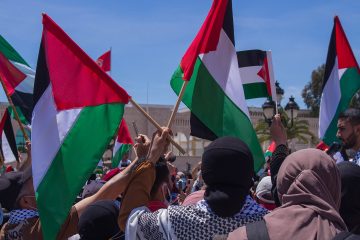As civil war erupted in Syria in 2011, the world watched as millions of Syrians were faced with the unimaginable peril of uprooting their lives to flee violence and persecution. Many sought refuge in Turkey with newfound hopes of stability and safety; once there, however, they experienced novel challenges to their survival, subjected to multifaceted political and economic arrangements of their host countries. As Syrian refugees navigate these changes, so does Turkey. Since 2014, Turkey has hosted the world’s largest refugee population, totalling roughly four million registered refugees and asylum seekers, including over three million Syrians under temporary protection. Through temporary protection status, Syrian refugees are provided protection and assistance, including the right to reside in Turkey until more permanent accommodations can be found. Temporary protection prohibits forcible returns to the country asylum seekers are fleeing from, and provides protection to refugees by upholding fundamental rights and needs. In 2019, over 98% of Syrian refugees in Turkey lived in host communities, with less than 2% residing in temporary accommodation centres. This integration of Syrian refugees into the Turkish population has been met with the rise of xenophobia and anti-refugee sentiment. Public refugee disaffection has infiltrated government policies which have institutionalized barriers for Syrian refugees to receive adequate education in Turkey. The impending lost generation — children growing up without access to education — is a reality that looms over the refugee crisis.
Changing of the Tide: Turkey’s Retreating Refugee Policy
Turkey’s ratification of the 1951 UN Convention on the Status of Refugees operates on a geographic specification limited to those fleeing from events in Europe, disqualifying many refugees and asylum seekers who are asking the Turkish state for permanent protection, including Syrians who are then unable to receive adequate refugee treatment by international legal standards. However, as the Syrian crisis continued, Turkey’s refugee policies have evolved. The Law on Foreigners and International Protection (LFIP), adopted in 2013, maintains the geographic limitation to the 1951 Convention, but ensures protection and assistance for all asylum seekers and refugees regardless of their country of origin. This new law remedied inconsistencies between international refugee law and Turkey’s own refugee policies, providing more favourable protection for Syrians and adherence to Turkey’s international obligations.
Turkey’s open-door policy at the outbreak of the Syrian crisis portrayed a considerable effort by the government to address the refugee crisis. Turkey’s policy of temporary protection, in effect since October 2011, became encoded in national law in 2013 with the adoption of the LFIP. However, temporary protection granted by the Turkish government, while considered to be unlimited, has failed to include any legal provision on how temporary protection status can be upgraded to permanent legal status. Furthermore, despite temporary protections in law, the conditions of the LFIP have created significant bureaucratic barriers for refugees to obtain residency permits and to access the labour market and other essential social services.
Looming Lost Generation: Barriers to Education
These shortcomings in policy have translated to substantial obstacles for refugees’ educational opportunities in Turkey. Many Syrian children have been out of school for years, as schooling was interrupted by the outbreak of conflict. This must be urgently addressed, as the self-sufficiency of Syrians in the long-term is rooted in the opportunity to receive an education. In the absence of an educational environment that fosters the development of critical thinking skills, youth are more vulnerable to recruitment to radical groups, illegal child labour rings, and sexual exploitation. In many instances, child labour and early marriage are being prioritized over education, particularly when access to food and shelter is so fragile, with limited opportunities for refugees to take part in the labour force. One out of every ten refugee children is estimated to be working instead of attending school.
Under international law, the government of Turkey is obliged to provide all children living in Turkey with free and compulsory primary education and access to secondary education. In conjunction, Turkey has taken many steps to alleviate barriers to formal education for refugees. In 2014, the government lifted restrictions that mandated Turkish residency permits for Syrians’ school enrollment. The country also established temporary education centres that offer Arabic-language curriculums. In Turkey’s 25 government-run refugee camps, approximately 90% of school-aged (6 to 12 years old) Syrian children regularly attend school. However, these children represent only 13% of the school-aged population of Syrian refugees in Turkey. A vast majority of Syrian children live outside refugee camps in host communities, where school enrolment is much lower. For example, in the 2014-2015 school year, only 25% attended school. Therefore, despite efforts to reform the education system, access to education has been deficient. Economic hardship continues to be a significant barrier preventing Syrian refugee children who live outside of refugee camps from attending school. Families cannot absorb the costs of transportation and school supplies. Child labour is common among the Syrian refugee population due to work permit laws which limit opportunities for labour force participation; since work permits are extremely costly for refugees to obtain, many families rely on their children to supplement household income.
Standing Up For Refugee Education
Refugee education policies are complex and resource-intensive, and are susceptible to ongoing internal dynamics within host countries that are grappling with economic and political issues that have been exacerbated by the presence of refugee populations. Political leadership that values human rights is needed to find new approaches that better protect and assist Syrian refugees. For the sake of the future of Syrian society, refugee policies must allow for a dignified life for Syrians, which includes first and foremost addressing the issue of Syrian child labour and continued barriers to education. Syrian refugees have faced horrific trauma in witnessing the destruction of their home, and while the Syrian conflict is ongoing, it is the responsibility of the international community to inspire Syrian youth to dream of their future. Syrians should not be defined by the brutality of Bashar al-Assad’s dictatorial rule and political violence; access to education has the ability to empower Syrians to rise above the trauma of their past.
Edited by Yesmine Abdelkefi and Arimbi Wahono.




